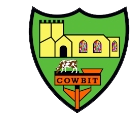Religious Education
Religious Education Intent
At Cowbit St Mary’s, we believe that the purpose of Religious Education is to support children in acquiring and developing knowledge and understanding of Christianity and other world faiths to help them make sense of the world around them. Through Religious Education, our children will develop their understanding and awareness of the beliefs, values and traditions of other individuals, societies, communities and cultures, and will learn to appreciate the way that religious beliefs shape lives and behaviours. Alongside our core Christian values, we include and promote British values, ensuring that children are aware of their rights and responsibilities as UK citizens.
At Cowbit St Mary’s, our Curriculum is underpinned by our locally Agreed Syllabus and complimented by Understanding Christianity, with the compulsory teaching of the following religions:
- Christianity
- Islam
- Hinduism
From the syllabus, it is required that:-
KS1 - Christianity and Islam are studied.
KS2 – Christianity, Hinduism and Islam are studied.
Other religions, beliefs and worldviews can be studied alongside the core religions as a point of comparison, but not as the focus of study. They can also be investigated in depth as part of the additional units.
In the Early Years Foundation Stage the programme of study links specifically to some Early Learning Goals and we introduce our children to the specific religions outlined above through stories, celebrations and festivals, people who are special to us and our beautiful world.
We acknowledge that each religion studied can contribute to the education of all our pupils. We promote teaching in Religious Education that offers opportunities and possibilities through open enquiry and first-hand experiences wherever possible for both staff and children. Our curriculum is designed to encourage creativity, debate, discussion, confidence and independence. Our pupils are encouraged to ask the “big questions” about the world (spirituality) and to reflect on their own beliefs, values and experiences so they get a sense of belonging. Children will be taught to question thoughtfully, and to compare compassionately, in order to celebrate the diversity of thinking across the globe. They will be taught to respect the rights of others to hold diverse opinions and participate in culturally different practices
There is interconnectivity between Religious Education and other curriculum areas in promoting the spiritual, moral, social, cultural and character development of our children, giving them the ability to make reasoned and informed judgements about religious and moral issues. Our Religious Education curriculum is further enhanced with trips to places of worship or visitors of various faiths, supporting our culture and diversity key to success.
